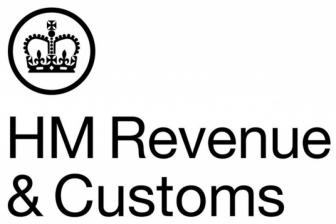Cornerstone tax advisor David Hannah has lost his appeal against a first tier tribunal verdict that he avoided paying thousands of pounds of tax on the acquisition of his property in Leicester.

Hannah has been ordered by an Upper Tax Tribunal to repay the £30,600 stamp duty he avoided, plus a penalty of more than £17,000, after taking part in a tax-saving scheme when buying the 3,500 sq ft property in 2011.
The court was told that Hannah listed the 5% deposit he paid for the property, £38,250, as the full purchase price with the Land Registry and concealed the rest of its £765,000 value.
The remainder of the price was then paid to the sellers through an annuity registered in the British Virgin Islands, which the seller was then able to redeem once the purchase was completed.
This meant that the full purchase price was officially registered with the taxman as being just the deposit and Hannah had no stamp duty to pay, which HMRC deemed to be “a clear attempt at stamp duty avoidance”.
Delivering a written verdict at the tribunal, Mr Justice Morgan and Judge Swami Raghavan upheld the verdict of the first tier tribunal in 2019 that Hannah’s avoidance of stamp duty had been “deliberate”.
The judges said: “HMRC’s case as to the deliberate inaccuracy called for an explanation which Mr Hannah ought to have been in a position to give, if one were available.
“The inference was that Mr Hannah had not given an explanation because his explanation, and a testing of that explanation by cross-examination, would not have supported his case.”
Hannah, who must also pay a fine of £17,136 levied by HMRC for a “deliberate but not concealed” inaccuracy in relation to the purchase of his property, said he plans to take the case to the Court of Appeal.
A spokeswoman for the Institute of Chartered Accountants in England and Wales said: “Our professional conduct department reviews all published judicial and tribunal judgments concerning ICAEW members to see whether there has been anything highlighted by a court or a tribunal which could give rise to a potential liability to disciplinary action. If so, an investigation will be opened.”
Hannah refused to comment further while he appealed against the upper tribunal verdict.
Last year he was ordered to pay £60,000 in penalties, fines and court costs by the Taxation Disciplinary Board when it found he had played down the risks of a stamp duty avoidance scheme to a client – advice that he is believed to have offered a number of clients.
Other cases are now believed to be being brought against Cornerstone by clients who are themselves now being pursued for tax avoidance by HMRC.
A spokesman for HMRC said: “We’re very pleased with the upper tier decision which confirms our view that this was a clear attempt at stamp duty land tax avoidance that does not work.
“We would warn those buying a property that if someone approaches you saying they can reduce your stamp duty bill, you should be very careful – you may have to repay all the tax you reclaim and a penalty as well. If something seems too good to be true then it almost certainly is.”


A tax adviser who keeps getting caught and fined can’t be the sharpest tool in the box.
The sad thing is, users of tax avoidance schemes pay a fee to the clown who arranges the scheme and then when they get caught they lose the fee they have already paid as well as being on the hook for their tax liability and fines. It’s a mugs’ game.
You must be logged in to like or dislike this comments.
Click to login
Don't have an account? Click here to register
Dear oh dear…
You must be logged in to like or dislike this comments.
Click to login
Don't have an account? Click here to register
Now Im confused ….isnt it tax evasion? I thought avoidance was playing the system and legally getting away with ?
You must be logged in to like or dislike this comments.
Click to login
Don't have an account? Click here to register
Hannah was up before the Tax Disciplinary Board in 2016 where he was fined £5000 , ordered to pay £5000 compensation to a client and costs of £49,000 for poor advice breaching his professional rules of conduct. The schemes devised do seem to be too good to be true ! The client paid £12,000 for the advice.
HMRC considered this type of scheme and other schemes to be an aggressive form of tax avoidance and S75A was introduced to close the loophole.
“A scheme was devised whereby an unlimited company would be formed. That unlimited company would then be capitalised to the sum of the value of a property. The unlimited company would then contract to purchase the property, from the vendor. The Directors of the unlimited company would resolve that the unlimited company would reduce its share capital at the time of the completion of the purchase, by way of a distribution in specie of the property, to its limited company parent. Because this distribution was not a transfer of property for consideration (see section 45(3)(b)(ii)), SDLT was not payable. As a result, SDLT did not fall to be paid by the ultimate acquirer of the property (the limited Company).?
You must be logged in to like or dislike this comments.
Click to login
Don't have an account? Click here to register
Definitely bordering on tax evasion.
You must be logged in to like or dislike this comments.
Click to login
Don't have an account? Click here to register